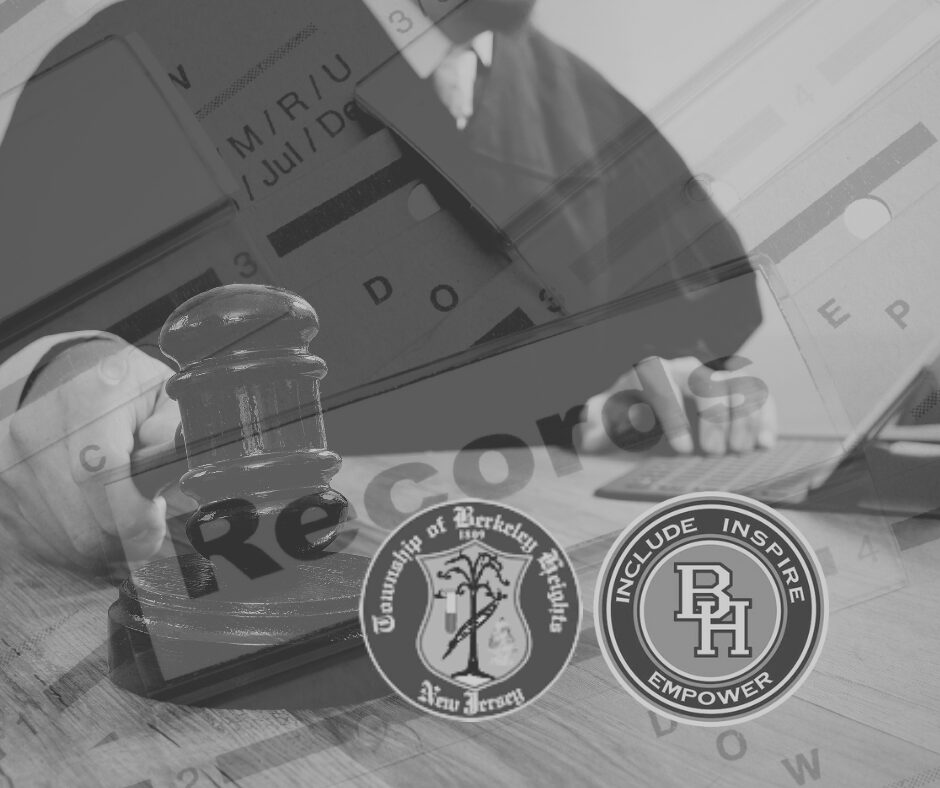Continuing to Fact Check Berkeley Heights 08/26/2025 Unsigned, Unattributed Press Release
In our first article of the Townships unsigned press release we highlighted that the Townships 3.5M “Emergency” bond was now most likely going to be funded by Berkeley Heights residents, not FEMA grants – a fact buried in many paragraphs that weaved in an odd collection of storm water narratives.
This article will focus on claims connected to the debate on clearing rivers and streams.
In it’s unsigned press release an unnamed township representative wrote:
“Municipalities cannot undertake flood mitigation projects on private property, and no work can be conducted in waterways without appropriate NJDEP permits. Additionally, the State retains ownership and regulatory authority over most waterways, which means municipal actions are often dependent on coordination with State and County partners.”
The New Jersey Department of Environmental Protection (NJDEP) does regulate rivers, brooks, and streams under the Flood Hazard Area Control Act. Municipalities cannot simply send a DPW crew into a river with heavy equipment. Permits are required.
But the law does not make such work impossible. NJDEP issues Flood Hazard General Permit and other permit-by-rule approvals that allow towns and counties to:
– De-snag channels (remove fallen trees and debris)
– Remove accumulated sediment and garbage
– Stabilize stream banks
In short: clearing waterways is not prohibited.
Other Towns Have Done It
Examples from around the state show municipalities and counties regularly apply for and receive NJDEP approval for stream clearing:
Cranford: Link
Hanover and East Hanover: Link
Rahway: Link
New Providence: “Brookside Drive over by Salt Brook School. You did a complete stream cleaning of that. You did lining of that. You improved flow… In 2014, we did Pineway, Ashwood Road, and Brook Hollow Lane. They were streams that were completely encumbered by trees and debris. You went in … and bring it back to its original condition.” (08/12/2025 Town Council Meeting) : Link
Residents Push Back
At the most recent Town Council meeting (prior to the press release), a resident told the mayor and council that the constant refrain of “unprecedented storms” is no longer credible.
“On August 17th, we had another heavy rain event that lasted two hours and produced 2.5 inches of rain. The creek on Briarwood came within feet of overflowing its bank. Robbins was at the top of its banks. We cannot keep using unprecedented rain as the explanation. This happens too often, and the system in place is no longer sustainable.”
The resident said creek infrastructure requires maintenance, just like homes, cars, or public buildings, and pointed to nearby New Providence as a town already budgeting for routine inlet and outflow inspections and stream cleaning.
“They budget yearly routine inlet outflow inspections and cleaning on their creeks. This does not require permits. At the very least, this should be implemented immediately.”
They also challenged the Township’s claim that ownership complicates action.
“Regardless of ownership, the creek is being used by the Township stormwater system. That means it’s shared responsibility. Maintenance … cannot be dismissed simply because you don’t know if it lies on private land.”
The resident also asked a critical question:
“Councilman Susan Poage is already on the council and if this issue is so important enough for her to include it in her campaign materials, then why has it not been made a visible priority since 2021 when residents began raising their concerns?”
Township Response
Mayor Angie Devanney acknowledged frustration but cited budget caps and the need for planning:
“We are in the process of meeting with our professionals and our attorney to figure out what we can do, what we’re required to do with DEP… If we only have wiggle room of $200,000 and we find out it’s going to cost us $2 million, there are things that we still have to figure out.”
The Township Attorney read from state regulations, stressing the need for NJDEP permits:
“Dredging within regulated flood hazard areas requires authorization, often an individual permit. … We need a permit just to come down in that creek and take crap out. The creeks and streams are owned by the State of New Jersey. Access often goes through private properties. One wrong move opens the Township up to a lot of liability.”
You Knew What We Were Going to Do, Right?
To cut through the conflicting claims, NJ21st filed an Open Public Records Act (OPRA) and common law records request last week. We asked the Township to produce:
– Any NJDEP permit applications for stream clearing since 2015
– Any engineering plans referencing de-snagging, dredging, or brook maintenance
– Any correspondence with NJDEP, Union County, or the U.S. Army Corps of Engineers about river or brook clearance
This will show whether Berkeley Heights has ever attempted to use the same permit pathways as its neighbors.
Clearing rivers and brooks is not a silver bullet, but it can reduce blockages and back-ups during heavy storms. Other towns in New Jersey are using this tool. Berkeley Heights’ residents are demanding the same — and our records request will help answer whether the Township has tried, or simply chosen not to.
We also requested records connected to the 3.5 Million Dollar bond to provide greater clarity on how that fell through.
We’ll report back once the Township responds.
Council Meeting Clip
OPRA Request On DEP Permit Applications
OPRA Request on Information Connected to 3.5 Million Dollar “Emergency” Bond
Editor’s Note
The following statement was issued by the Township of Berkeley Heights on August 26, 2025. It is an unsigned, unattributed release, which means it does not meet NJ21st’s transparency standards for publication as a full article.
Government press releases are considered public records intended for broad distribution, and outlets republish them directly. While NJ21st makes such documents available for reference, we do not present unattributed government communications as our own reporting.
Our policy is to clearly label the source of any material we share so readers know whether they are reviewing independent reporting or an official government statement.
Unsigned Township Statement
As a non-commercial and ad-free, free platform, we rely on you to help us grow. If you value independent coverage of local government, please consider helping us out.
Also See Our First Article on the Unsigned, Unattributed 08/26/2025 Township Press Release
|



